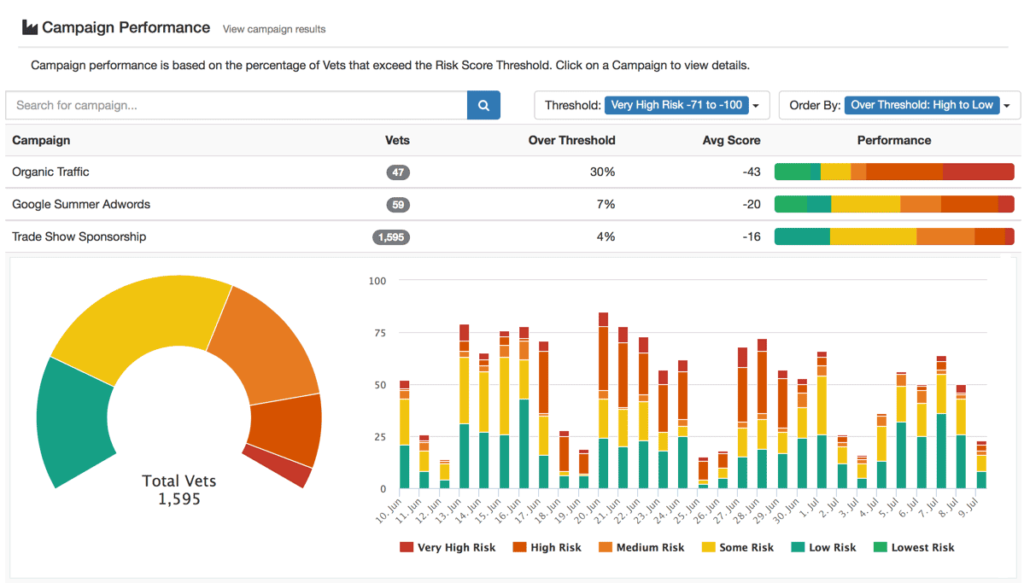7 Content Marketing Platform Benefits For Your Business

In today’s digital age, content disseminated through blog posts, social media posts, newsletters, or podcasts, has become crucial for the growth of any business. Content has become an essential aspect of any marketing communication strategy and when it adds value, it plays a crucial role in pulling and retaining the target audience for a long duration.
But for small and medium businesses, allocating resources and even figuring out how to put a winning content marketing strategy in place can be an uphill task. This is where content marketing platforms come into play. Content marketing platform benefits are plenty. These robust tools offer a range of functions that help businesses streamline their content creation, distribution, and analysis processes.

7 Benefits of Using a Content Marketing Platform
In this article, we will explore the key advantages of content marketing tools (specifically platforms) and how they can empower you to drive success and achieve your marketing goals.
1. Centralized content management
One of the primary benefits of using a content marketing platform is the ability to centralize content management. Instead of juggling multiple tools and platforms, you can leverage a single hub for creating, organizing, and publishing content. This centralization streamlines workflow processes, reduces manual effort, and enhances efficiency.
Content marketing platforms provide a unified interface where teams can collaborate, ensuring everyone is on the same page. Moreover, with centralized content management, you can maintain consistency across your content strategy, brand messaging, and visual identity. This helps to build a strong brand presence and reinforces the desired perception among target audiences.
The benefit of using a content marketing platform like Pepper Content’s CMP is that it is a comprehensive platform that offers a wide range of tools and services to help businesses create, manage, and distribute high-quality content that resonates with their target audience. The tools enable a streamlined content creation process that includes a content brief builder, a content calendar, and a project management system.
2. Robust internal collaboration
Another content marketing platform benefit includes facilitating seamless collaboration among team members involved in content creation and distribution. These tools often offer features such as content calendars, task assignments, and version control, enabling teams to work together efficiently. Multiple stakeholders can contribute to content creation, review, and approval processes, eliminating bottlenecks and improving communication.
One of the key advantages of content marketing tools is that they foster creativity and innovation by promoting idea-sharing and brainstorming sessions. With enhanced collaboration, businesses can ensure that the final content aligns with their brand guidelines, marketing objectives, and target audience preferences.

For example, platforms like DivvyHQ and Trello offer collaborative workspaces where team members can assign tasks, provide feedback, and track progress. Trello offers a visual project management approach with boards, cards, and checklists, allowing teams to easily collaborate and organize their content-related tasks.
3. Advanced content planning and strategy
Successful content marketing requires careful planning and strategic execution. Another benefit of using a content marketing platform is that they provide businesses with the tools they need to develop and implement effective content strategies. These platforms allow users to create content calendars, schedule posts in advance, and strategically plan content distribution across various channels.
The content marketing platforms benefit your company by mapping out a content roadmap and ensuring a consistent publishing schedule, preventing content gaps or overwhelming audiences with too much information at once.

SEMrush offers a robust suite of tools that allow businesses to perform keyword research, analyze competitors, and plan their content calendar accordingly. With Semrush’s Content Marketing Toolkit, businesses can identify trending topics, track their content performance, and optimize their strategies based on data-driven insights.
4. Audience targeting and personalization
Content marketing platforms benefit businesses by offering robust audience segmentation and targeting capabilities, empowering businesses to deliver personalized experiences to their customers. These tools enable businesses to define specific target groups based on demographics, interests, and behaviors. With this information, businesses can tailor their content to address the specific pain points, interests, and preferences of different audience segments.
Personalized content drives higher engagement and conversion rates, as it demonstrates a deeper understanding of the target audience and provides value that resonates on an individual level. One of the key benefits of content marketing platforms is that it helps businesses segment their audience and deliver tailored content through multiple channels, such as websites, blogs, social media, and email newsletters. They do not have to hunt for tools to create content for various mediums.

5. Analytics and performance tracking
Measuring the success and impact of content marketing efforts is essential for ongoing optimization. Content marketing platforms often come equipped with built-in analytics and reporting features, providing businesses with valuable insights into content performance. These analytics help businesses understand how their content is resonating with their target audience, what channels are driving the most engagement, and which content pieces are contributing to conversions.

By tracking key metrics, businesses can identify trends, uncover areas for improvement, and make data-driven decisions to enhance their content strategies. By integrating tools such as Google Analytics, content marketing platforms offer comprehensive analytics, including metrics like page views, time spent on a page, bounce rates, click-through rates, and conversion rates.
These insights allow businesses to assess the effectiveness of their content, identify high-performing pieces, and optimize underperforming ones. Furthermore, the data helps businesses understand their audience better and refine their targeting strategies.
6. Content distribution and amplification
By utilizing content marketing platforms, businesses can publish their content directly to their websites, blogs, and social media channels. This streamlines the distribution process, ensuring consistent messaging and brand presence across all platforms. Some platforms even offer integration with third-party distribution channels, allowing businesses to expand their reach and tap into new audiences.

Additionally, content marketing platforms benefit you by providing features for content amplification, such as social media scheduling and email marketing automation. These tools enable businesses to reach a larger audience, increase brand visibility, and drive traffic to their content. By leveraging content distribution and amplification capabilities, businesses can maximize the impact of their content marketing efforts and generate greater engagement and conversions.
7. Enables scalability and growth
Content marketing platforms are designed to accommodate the growth and scalability needs of businesses. As businesses expand their content marketing efforts, content marketing platforms provide the necessary infrastructure to manage and scale their operations. They offer robust storage capabilities, allowing businesses to store and organize a vast amount of content assets efficiently, besides other benefits of a content marketing platform.
Integration capabilities are another valuable aspect of content marketing platforms.
Pepper Content’s Content Marketing Platform can integrate with customer relationship management (CRM) systems, email marketing tools, analytics platforms, and other marketing technologies. For example, a content marketing platform may integrate with a CRM system like Salesforce, enabling businesses to track content engagement and tie it to customer data. This integration facilitates personalized content recommendations and more targeted lead nurturing.
Wrapping Up
Let’s dispel some of your fallacies regarding content marketing platforms. Whether you are a big or small business, you can reap the benefits of content marketing platforms. They offer an affordable and expert-driven platform for companies to channel their resources for engaging with a wider audience and increase their revenue.
Standing tall in the face of competition can be an arduous task especially when the other players have been there for a while. Fortunately, the internet is offering a level playing field to companies of all sizes to reach their target demographic. By partnering with a content marketing platform, you have the opportunity to unlock the full potential of your business.
FAQs
A content marketing platform is a software tool or suite of tools that help businesses streamline their content creation, distribution, and analysis processes. It provides a centralized hub for managing and organizing content.
Yes, content marketing platforms cater to businesses of all sizes. There are platforms available that can accommodate the needs and budgets of small businesses, while also offering scalability and advanced features for larger enterprises. It’s essential to evaluate different platforms and choose the one that aligns with your specific business requirements and growth aspirations.
Content marketing platforms are designed to integrate with various marketing tools and systems, allowing businesses to leverage a comprehensive marketing ecosystem. Most content marketing platforms offer integration options with popular tools such as customer relationship management (CRM) systems, email marketing software, social media management platforms, analytics tools, and more.
Latest Blogs
Learn how to rank on AI search engines like ChatGPT, Perplexity, and Gemini by optimizing your content for authority, structure, and relevance. Stay ahead in AI-driven search with this strategic guide.
Explore the best healthcare SEO services for your medical practice. Improve online visibility and effectively reach more patients in need of your services.
Discover top social media agencies specializing in banking solutions, enhancing financial services and driving engagement.
Get your hands on the latest news!
Similar Posts

Product
6 mins read
Elevate Your Content Strategy: The Value Proposition of Content Marketplace Platforms

Product
5 mins read
Achieving Seamless Content Marketing Platform Integration With Marketing Tools

Product
5 mins read